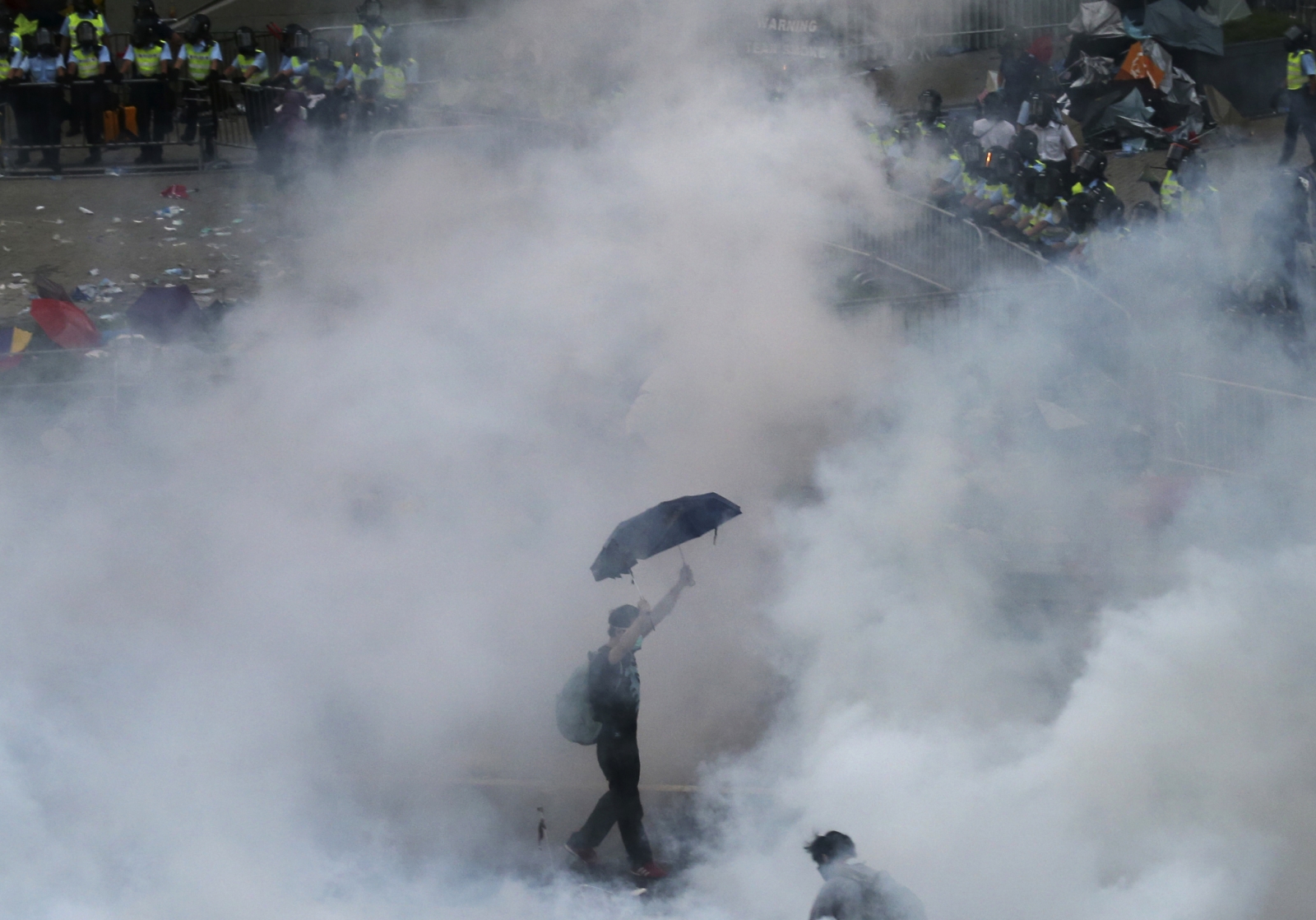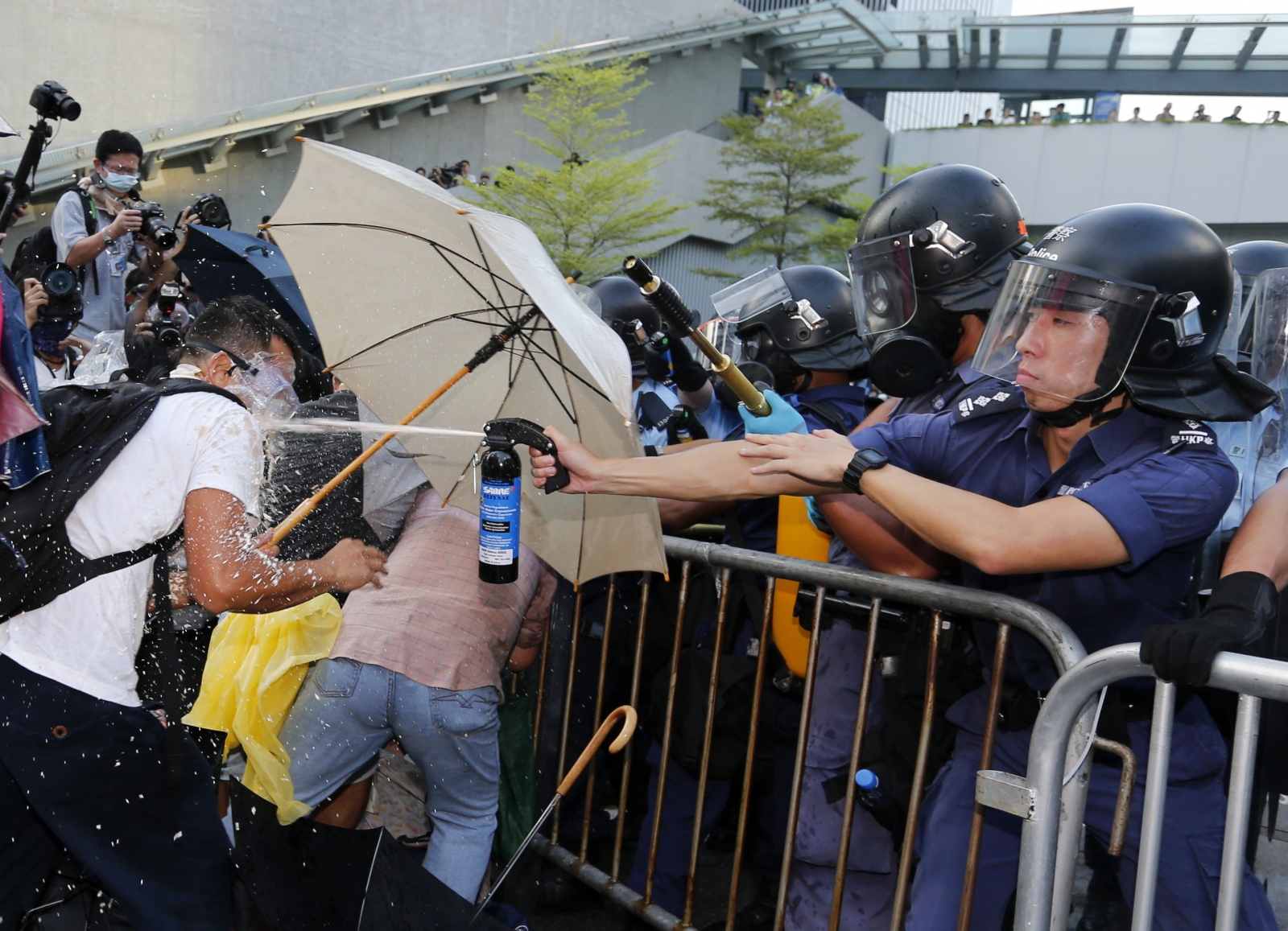Occupy Hong Kong: Riot Police Fail to Disperse Democracy Protests With Tear Gas Attack
Protestors in Hong Kong 'come back angry' after police use tear gas to disperse crowds



Pro-democracy protestors in Hong Kong are re-occupying central Hong Kong at midnight (local time), after riot police failed to disperse the crowds with baton charges and tear gas.
The protests are some of the worst scenes of disorder since the city was handed back to China in 1997.
At least 30 people were injured in the disorder, as Hong Kong's police force disrupted protests that had shut down central Hong Kong for most of Sunday.
I just stumbled onto this photo. It speaks for itself. #OccupyCentral pic.twitter.com/IBVOm55xKx
— Andrew Peng (@TheAPJournalist) September 28, 2014The protests – "Occupy Central with Love and Peace" – have been gathering momentum since China's government announced in August that the city's next chief executive will not be freely elected, but must be chosen from one of several candidates hand-picked by Beijing.
If today I don't stand out, I will hate myself in future. Even if I get a criminal record it will be a glorious one.
Hong Kong residents had been promised free elections as part of "one country, two systems" principle in which Hong Kong has a different political and government system to that of mainland China.
The current chief executive of Hong Kong, Leung Chun-ying, said before the violence began, that police would treat protestors firmly if they defied the law: "The police are determined to handle the situation appropriately in accordance with the law."
Despite the warning up to 80,000 protestors converged on roads around Admiralty, in Hong Kong's Central district by Sunday evening (local time).
Even if we get beaten up, we cannot fight back. We will win this war with love and peace
Police in riot gear used pepper spray to try to clear the crowds, but protesters came prepared with goggles and umbrellas in a bid to protect themselves.
Police then baton-charged protesters who responded by shouting abuse and throwing missiles, in violent scenes rarely seen in Hong Kong.
A spokesperson for China's Hong Kong and Macau Affairs Office said China's central government backed the crackdown by police.
In an apparent sign China has been unnerved by the protests, the Chinese social network site Weibo blocked the phrase "Occupy Central", having earlier allowed it.
Now: Occupation extends to Causeway Bay #OccupyCentral pic.twitter.com/v72EHQz4fF
— Jasmine Siu (@jasmine_siu) September 28, 2014Publisher Jimmy Lai, one of the main figures behind the pro-democracy movement, said: "The more Hong Kong citizens come, the more unlikely the police can clear up the place. Even if we get beaten up, we cannot fight back. We will win this war with love and peace."
If you thought tear gas was enough to disperse Hong Kong's protesters. They came back only angrier. pic.twitter.com/64QCDSsbxj
— Alan Wong (@byAlanWong) September 28, 2014
Mong Kok protesters sitting down blocking Nathan Road, a hugely busy Kowloon thoroughfare. Quite a sight #HongKong pic.twitter.com/IKOajO79ID
— Katy Lee 李玥缇 (@kjalee) September 28, 2014
© Copyright IBTimes 2024. All rights reserved.






